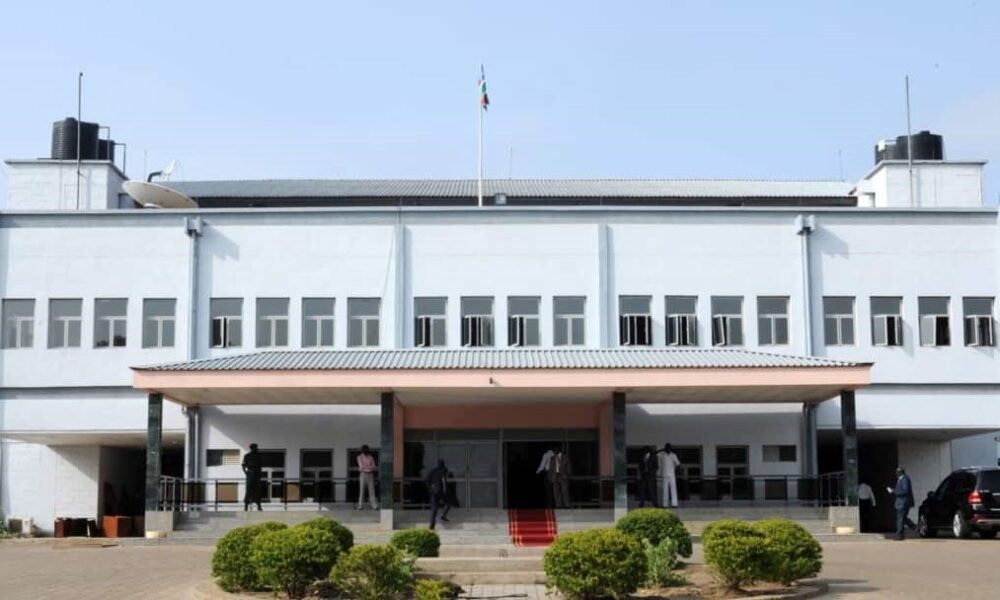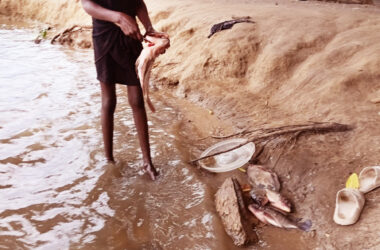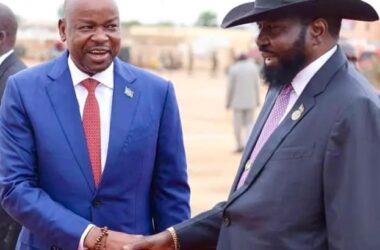By Philip Buda Ladu
National Minister of Lands, Housing and Urban Development (MLHUD) presented Draft National Land Policy 2023 to the Transitional National Legislative Assembly for deliberation, on Wednesday.
The policy was first submitted in December 2023, for deliberation and approval.
In his presentation, minister Minister Michael Chiangjiek Geay acknowledged the dynamic role of the South Sudan Land Commission (SSLC) which initiated, supported and remained instrumental throughout the manifold process for the development of this important policy.
Similarly, he appreciated and acknowledged the enormous support of the entire stakeholders, academia, civil society groups and international development partners in this effort.
The submission of this draft National Land Policy 2023, arises 3 years later after the first draft of South Sudan National Land Policy 2014, was withdrawn from the August House in 2020.
Minister Chiangjiek highlighted that the withdrawal came after substantial contributions were made by the then-Standing Parliamentary Committee on Lands and Physical Infrastructure.
“The withdrawal of the national land policy 2014 provided a unique opportunity to review the policy under the unfolded socio-political predicaments our country witnessed and the increasing threats of global climate change” he told lawmakers.
According to Chiangjiek, the draft policy was subjected to fresh rounds of consultations that widely addressed concerns about the emerging land issues and parameters of women’s rights and access to land.
Furthermore, the withdrawal of the policy has greatly made the document to be critically developed and live in the spirit of ARCSS 2015 and R-ARCSS 2018 after subjecting it to an in-depth review and analysis.
Mr. Chiangjiek emphasized that the recall of the draft national land policy in 2020 from the August house by the Ministry of Lands, was in good faith.
“Today, its resubmission after the critical review in the year 2023 is in the greatest interest of consolidating the cardinal aspirations of land for social cohesion, economic development and livelihood enhancement” he added.
Land is a precious heritage/cultural asset and the usage of the land and all land-based resources is fundamentally for the present and future generations, which accommodates the millions of deceased ones in their respective burial yards.
A research by the United Nations Fund for Population Activities (UNFPA) estimates that the World population will increase from 8.1 Billion people in 2023 to 9.7 Billion people in 2050.
Studies also predict that the population growth in the continent of Africa is expected to be of higher growth rates in the next decades.
The number of African Cities with a population of more than 20 million people will double due to the increasing urbanization and population fertility rates (UN-HABITAT 2014). For this South Sudan Cities are not exceptional.
Urbanization rate is high in South Sudan and estimated at 17%, which notably caused rapid urban growth in many towns. The rampant influx of foreigners into the country constitutes some major factor or driving force behind this extraordinary urban growth.
Correspondingly, the improved means of agricultural productivity and other technological advancements as a result of economic and security competitions put unprecedented demand on both urban and rural lands.
The entirety of such demand on land must be professionally and technically managed, otherwise, it will have discrete negative impacts on human settlements and the environment in the country.
The minister believes that there is a need for a viable national land policy framework to address such diverse fundamental land issues in order to realize sustainable socio-economic development and growth.
Historical Development Process of the National Land Policy.
The historical process for the development of this draft National Land Policy commenced right in 2006.
It was initiated by the Southern Sudan Land Commission and it has taken over 15 years of steady process that included study tours, workshops, public consultations, and research.
Multiple large-scale conferences/ consultations on the draft national land policy were held from 2006 up to this year 2023.
These consultations drew participants from national government, state governments, administrative areas, city municipalities, community leaders, civil society groups, academia, media houses and development partners.
Also, seminars and sectorial consultations were conducted in towns around South Sudan.
Minister Chinagjiek mentioned that the development of this draft national land policy took a great account and spirit of the AU Framework and Guidelines on Land Policy Initiative, Framework and Guidelines of Land Policy in Africa (F & G) (2010), the Voluntary Guides on the Governance of Tenure (VGGT) and The Women’s Land Rights Agenda for South Sudan (2021).
Additionally, a comparative analysis of land policy particularly at the regional and international levels was carried out by the Technical Team for the drafting of the national land policy.
The Ministry of land further acknowledged it has taken into consideration the customary rights and access to land into the cardinal principles of this draft national land policy 2023.
The 1st deputy speaker, Rt. Hon. Nathaniel Oyet Pierino who chaired the sitting on Wednesday committed the policy document to the specialized committees for Land and Physical Infrastructure and that of Legislation and Justice for scrutiny and report back to the house within 14 days.



